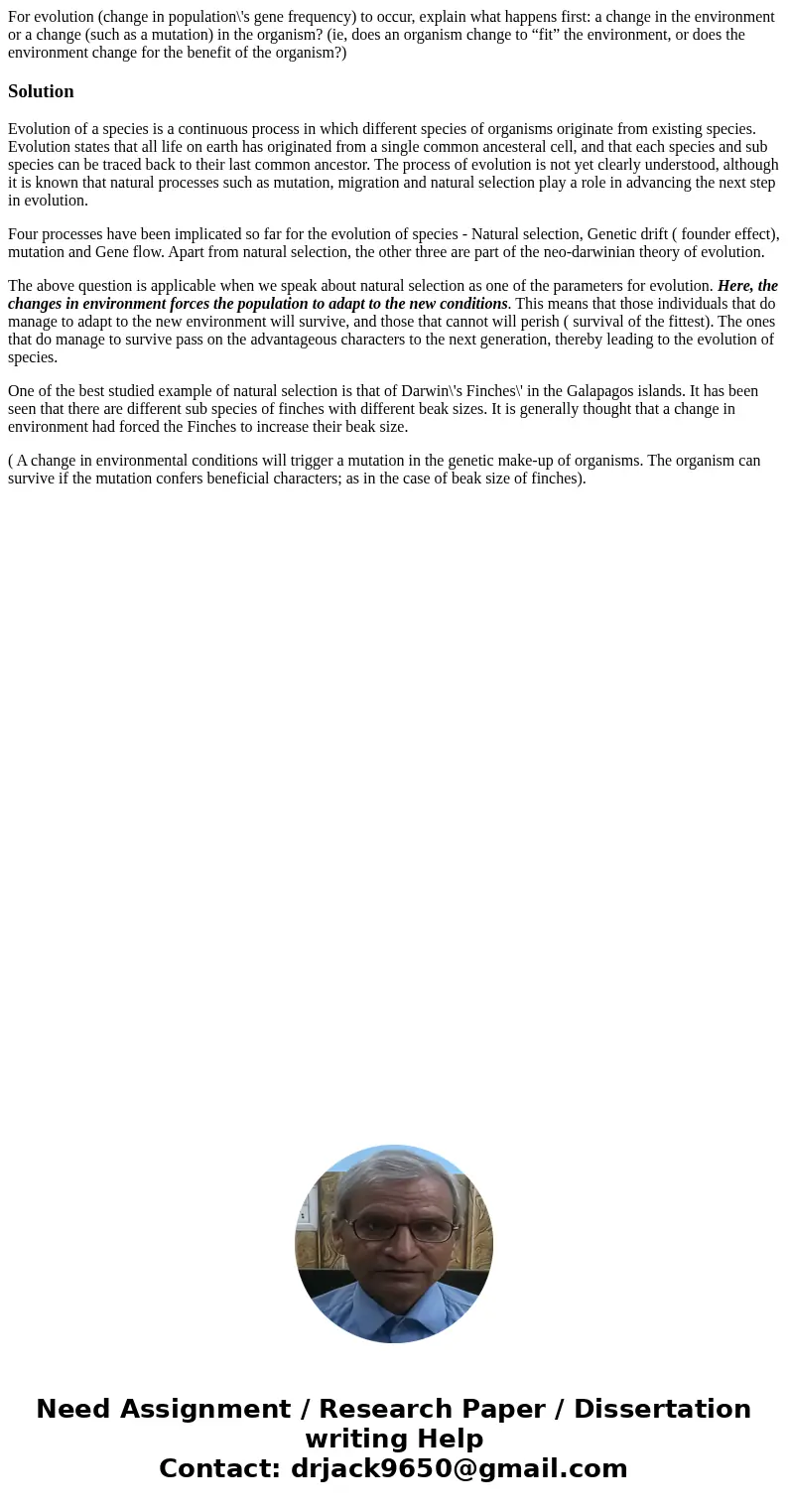For evolution change in populations gene frequency to occur
For evolution (change in population\'s gene frequency) to occur, explain what happens first: a change in the environment or a change (such as a mutation) in the organism? (ie, does an organism change to “fit” the environment, or does the environment change for the benefit of the organism?)
Solution
Evolution of a species is a continuous process in which different species of organisms originate from existing species. Evolution states that all life on earth has originated from a single common ancesteral cell, and that each species and sub species can be traced back to their last common ancestor. The process of evolution is not yet clearly understood, although it is known that natural processes such as mutation, migration and natural selection play a role in advancing the next step in evolution.
Four processes have been implicated so far for the evolution of species - Natural selection, Genetic drift ( founder effect), mutation and Gene flow. Apart from natural selection, the other three are part of the neo-darwinian theory of evolution.
The above question is applicable when we speak about natural selection as one of the parameters for evolution. Here, the changes in environment forces the population to adapt to the new conditions. This means that those individuals that do manage to adapt to the new environment will survive, and those that cannot will perish ( survival of the fittest). The ones that do manage to survive pass on the advantageous characters to the next generation, thereby leading to the evolution of species.
One of the best studied example of natural selection is that of Darwin\'s Finches\' in the Galapagos islands. It has been seen that there are different sub species of finches with different beak sizes. It is generally thought that a change in environment had forced the Finches to increase their beak size.
( A change in environmental conditions will trigger a mutation in the genetic make-up of organisms. The organism can survive if the mutation confers beneficial characters; as in the case of beak size of finches).

 Homework Sourse
Homework Sourse